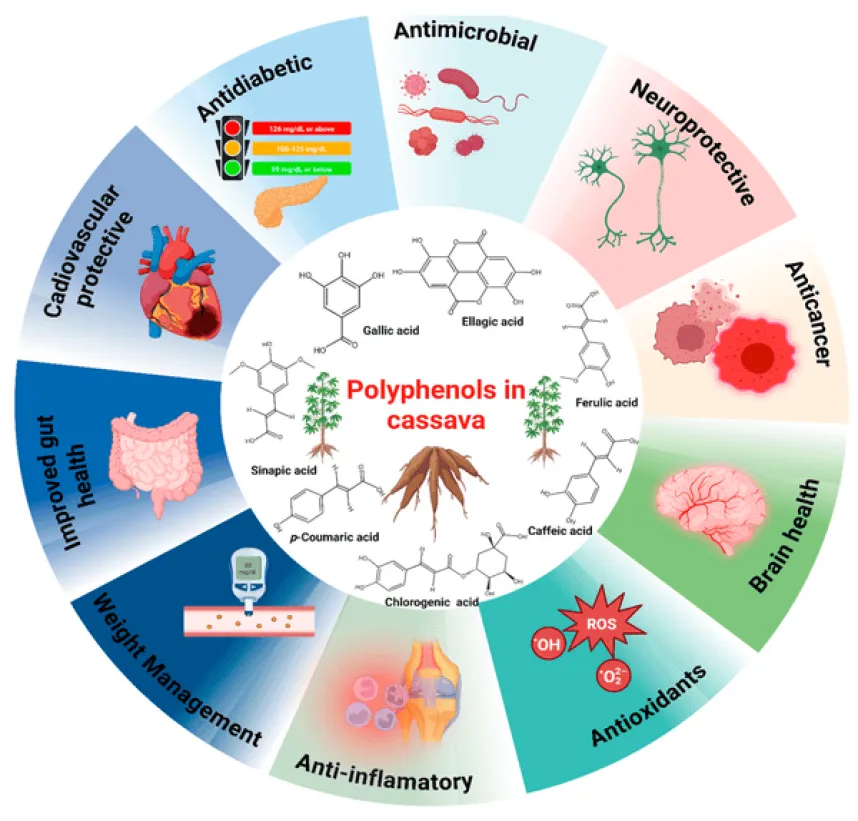The super root you’re not drinking yet: gut-boosting Cassava packs a protein punch
A new review published in the July 2025 issue of Beverages reveals how cassava, long valued as a food-security crop, is emerging as a sustainable and health-enhancing ingredient in the global beverage industry. The study is led by Dr. James Ziemah of Constructor University in collaboration with international partners.
Cassava is undergoing a quiet revolution—from staple starch to next-generation super-drink. A newly published review titled “The Phytochemical Insights, Health Benefits, and Bioprocessing Innovations of Cassava‑Derived Beverages” appears in Beverages (Vol. 11, Issue 4, Article 98), with Dr. James Ziemah of Constructor University as lead author, alongside researchers from Ghana, China, and South Africa.
The article explores cassava’s rich but overlooked phytochemical profile, including polyphenols such as (+)-catechin and gallic acid, which contribute natural antioxidant effects, flavor enhancement, and even shelf-life extension. “Cassava isn’t just starch,” notes the team. “It’s a carrier of health-boosting compounds with real potential in functional and probiotic beverages.”
The authors highlight breakthroughs in bioprocessing safety: fermentation with Lactobacillus plantarum reduces cyanide content by over 90%, while enzymatic treatments unlock up to 184 g/L of fermentable sugars—creating a safe and efficient base for low-alcohol and non-alcoholic drinks alike.
Cassava-based beverages also show impressive nutritional performance. Resistant starches enhance microbiome health and anti-inflammatory effects, while controlled fermentation can boost protein content by up to 30% within 48 hours. In addition, cassava supports the growth of Lactobacillus and Bifidobacterium, making it a natural ally in prebiotic and probiotic beverage formulations.
The study also tracks cassava’s commercial and cultural momentum, from Amazonian “masato de yuca” to modern cassava-based spirits and functional drinks. With precision fermentation and enzyme protocols on the rise, cassava is well positioned to rival grains like barley and maize in the $200 billion beverage market.
“This is the first comprehensive synthesis of cassava’s role in beverage innovation,” says Ziemah. “The science is catching up with centuries of tradition.”
Access the article here: https://www.mdpi.com/2306-5710/11/4/98
About the Authors: Dr. James Ziemah is a food scientist at Constructor University in Bremen, Germany, specializing in functional foods and sustainable fermentation. The international team includes contributors from C.K. Tedam University of Technology and Applied Sciences (Ghana), the Chinese Academy of Agricultural Sciences, and Constructor University colleagues Prof. Dr. Matthias Ullrich and Prof. Dr. Nikolai Kuhnert.
